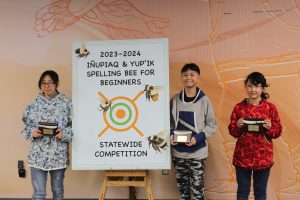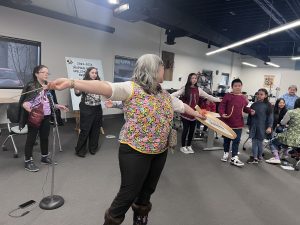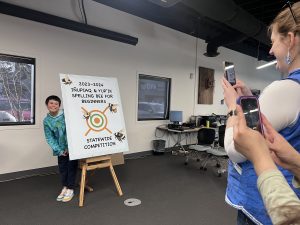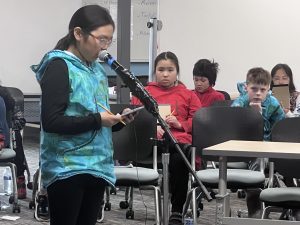Podcast: Play in new window | Download | Embed
As high school and college students plan for their graduations, some Native students could face resistance for wanting to wear tribal regalia with their caps and gowns.
The Mountain West News Bureau’s Kaleb Roedel has more.
For Native communities, an eagle feather is a symbol of wisdom and strength. And given in times of great honor – like a graduation.
But every spring, the Native American Rights Fund hears from students who were not allowed to wear an eagle feather or other tribal regalia.
Morgan Saunders is an attorney with the Colorado-based law group. She says parents often break down in tears when they discuss their child being denied their tribal identity.
“For many families, the wearing of the eagle feather is more important than the diploma because it’s something that’s given at this important time in their child’s life – they’re transitioning, often, into adulthood.”
More than a dozen states have laws to protect a Native students’ right to wear tribal regalia – including Nevada, Colorado, and Utah.
Saunders says families in states without those protections should review their school district’s policies and request dress code accommodations as early as possible.
- Yup’ik Spelling Bee Champion Arnayaraq (Kirsten Akaran Manumik), left, Yup’ik Spelling Bee Runner-Up Pilinguasta (Brennan Paje), Yup’ik Spelling Bee Champion Cukanraq (Jaylynn Strongheart). (Photo: Ruth Dan)
- Iñupiat spelling bee runner up Uluġina (Annabeth Huntington), left, and Iñupiat spelling bee champion Aġnauraq (Jaeleen Holder). (Photo: Daniel Hofmann)
Nunam Iqua in the Yup’ik language means land’s end – a place on the Bering Sea coast of Alaska that is so flat, it’s hard to tell where the land meets the sea.
But when it comes to spelling, this community stands tall.
The championship for this year’s statewide Yup’ik Spelling Bee went to Nunam Iqua.
The tournament was held at the University of Alaska Anchorage and Rhonda McBride from our flagship station KNBA was there.
Spelling bees aren’t the best of spectator sports. But families and coaches filled about fifty seats in the Alaska Native Science and Engineering Acceleration Building with lots of cell phone cameras ready to roll.
“I’m happy for the students. Nervous at the same time and I have butterflies in my stomach.”
Although Marina Barner can’t cheer out loud, she’s here to support a student from Bethel. And like everyone else in this room, she keeps quiet to help the students concentrate. But the sense of pride they feel speaks volumes.
Thomas Carl (Yup’ik) is a Spelling Bee parent.
“To be here, to be watching my daughter. I cannot express how it makes me feel. I am proud of her.”
Thomas Carl’s daughter Megan is only a fifth grader, but like the rest of the kids here, she’s a shining star of hope her community to keep the Yup’ik language, or Yugtun, alive.
Samantha Afcan coached this year’s champion from Nunam Iqua, Kirstin Manumik, a seventh grader, as well as Jaylynn Strongheart, a fifth grader who finished third.
“They’re awesome. The way their brains can connect it.”
They spent hours and hours every week to prepare for the competition, and one of the carrots was a trip to Anchorage.
Afcan says it was fun to hear them when they first arrived.
“Oh, look at that car. Oh, look at that truck. Look at that tree.”
Excitement for students who live in a place, where there’s not so much as a hill.
This year’s competition also included an Inupiaq spelling bee, with two students and a dance group that performed a song called the “Polar Bear Shake” to celebrate.
Get National Native News delivered to your inbox daily and stay up-to-date on the 2024 Native Vote. Sign up for our daily newsletter today.









